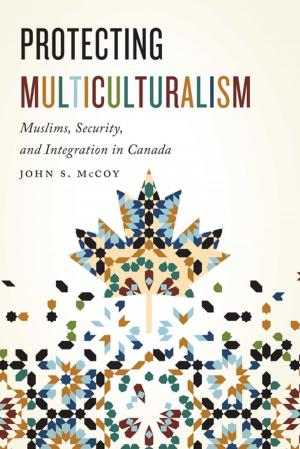Canadian Policing in the 21st Century
A Frontline Officer on Challenges and Changes
Nonfiction, Social & Cultural Studies, Social Science, Crimes & Criminals, Criminology| Author: | Robert Chrismas | ISBN: | 9780773589360 |
| Publisher: | MQUP | Publication: | September 1, 2013 |
| Imprint: | MQUP | Language: | English |
| Author: | Robert Chrismas |
| ISBN: | 9780773589360 |
| Publisher: | MQUP |
| Publication: | September 1, 2013 |
| Imprint: | MQUP |
| Language: | English |
How can police remain effective and vital in an era of unprecedented technological advances, access to information, and the global transformation of crime? Written by a long-serving officer, Canadian Policing in the 21st Century offers a rare look at street-level police work and the hidden culture behind the badge. Robert Chrismas shares experiences from his years of service to highlight areas where police can more effectively enforce laws and improve relations with the communities they serve. He proposes tactics for addressing widespread social issues such as gang and domestic violence and strategies for cooperating in international networks tackling human trafficking, internet-based child exploitation, organized crime, and terrorism. Chrismas stresses how changing demographics related to age, gender and racial diversity, and increased dangers and demands, require intensified training and higher education in policing. He highlights the need for more effective collaborative relationships between police and local, provincial, and federal governments, non-government agencies, and their communities. While the principles and goals of policing remain largely unchanged, police challenges, tools, and strategies have evolved dramatically. Chrismas's vantage point as an officer and a scholar provides an illuminating account of the Canadian justice system, and road-maps to future success.
How can police remain effective and vital in an era of unprecedented technological advances, access to information, and the global transformation of crime? Written by a long-serving officer, Canadian Policing in the 21st Century offers a rare look at street-level police work and the hidden culture behind the badge. Robert Chrismas shares experiences from his years of service to highlight areas where police can more effectively enforce laws and improve relations with the communities they serve. He proposes tactics for addressing widespread social issues such as gang and domestic violence and strategies for cooperating in international networks tackling human trafficking, internet-based child exploitation, organized crime, and terrorism. Chrismas stresses how changing demographics related to age, gender and racial diversity, and increased dangers and demands, require intensified training and higher education in policing. He highlights the need for more effective collaborative relationships between police and local, provincial, and federal governments, non-government agencies, and their communities. While the principles and goals of policing remain largely unchanged, police challenges, tools, and strategies have evolved dramatically. Chrismas's vantage point as an officer and a scholar provides an illuminating account of the Canadian justice system, and road-maps to future success.















